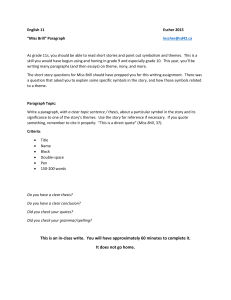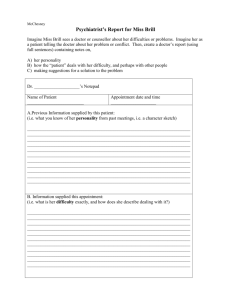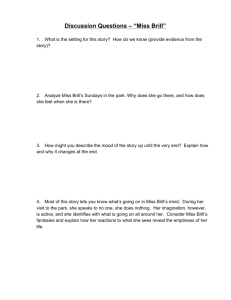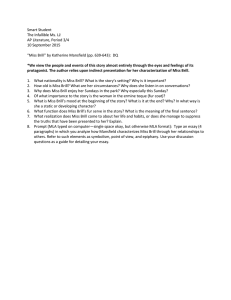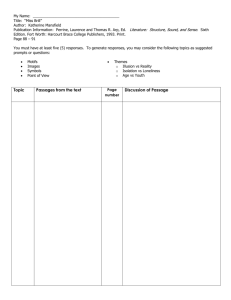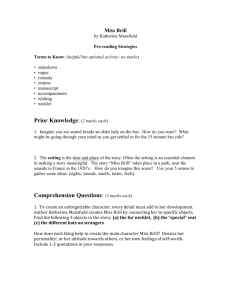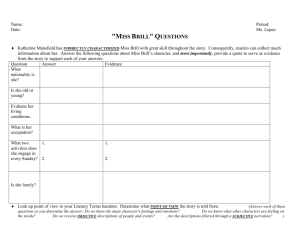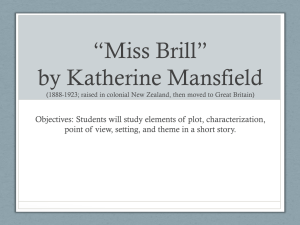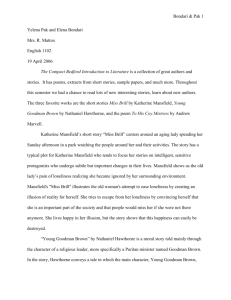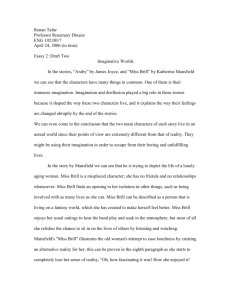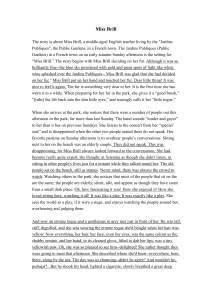Miss Brill
advertisement
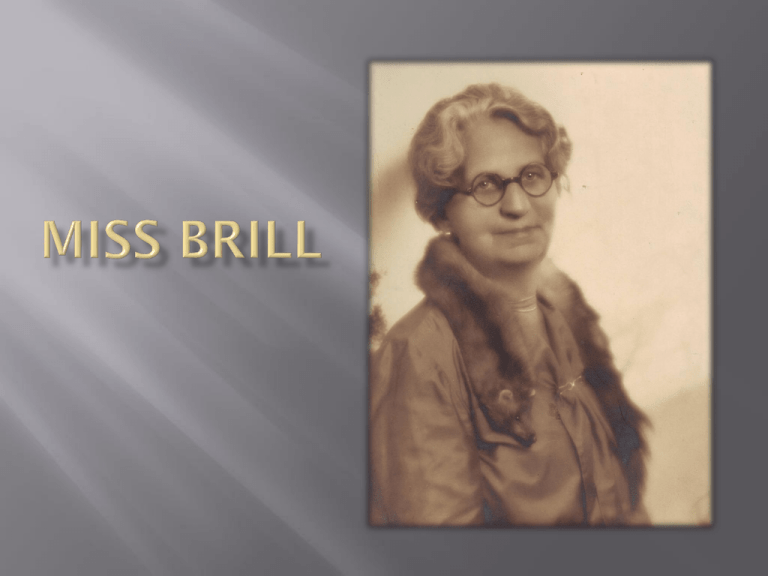
Miss Brill is a very lonely old woman who enjoys going to the park on Sunday afternoons and watching people from a park bench. She enjoys this activity because it gives her a feeling of connection to others despite the fact that no real connection occurs. Her fur stole is her best and only friend. Rather than participating in conversations, she instead eavesdrops on those of others, “sitting in other people's lives just for a minute while they talked round her.” The central theme of “Miss Brill” is the pain of loneliness, and inadvertent attempts lonely people make to experience life through the experiences of total strangers. Some of your evidence that Miss Brill is starving for warmth and companionship would include that she tenderly caresses her fur as if it were a beloved pet when she rubs “the life into the dim little eyes” of the old fox stole. Another important them is the idea of illusion versus reality and the way people often construct false realities in an attempt to escape or improve an unsatisfying life. Miss Brill creates a fantasy world in which she is an “actress” as a means of coping with her loneliness and lack of companionship. Lastly Mansfield is also making comment on society’s treatment of the elderly. As people age they become redundant and increasingly isolated or pushed to the margins. Younger generations lack proper respect and find the elderly burdensome while the elderly mainly want company and to feel of worth. Short stories are highly constructed pieces of literature. Every detail has significant meaning. Small details and objects in Mansfield’s stories take on significant meaning. Techniques used for effect in Miss Brill include: Symbolism, Simile, Metaphor, Irony, Contrast, Parallel characters and Inner Monologue. “What has been happening to me?” “She had taken it out of its box that afternoon…and rubbed the life back into the dim little eyes” “The old people sat on the bench, still as statues" “They looked as though they’d just come from dark little rooms or even cupboards” “She knew she needed them; but that it was no good getting any” “It was like a play, exactly like a play” “even she had a part and came every Sunday” “They were in love. The hero and heroine” “Why doesn’t she keep her silly old mug at home” “today she passed the baker by…went into her dark little room – her room like a cupboard” “when she put the lid on she thought she could hear something crying”
